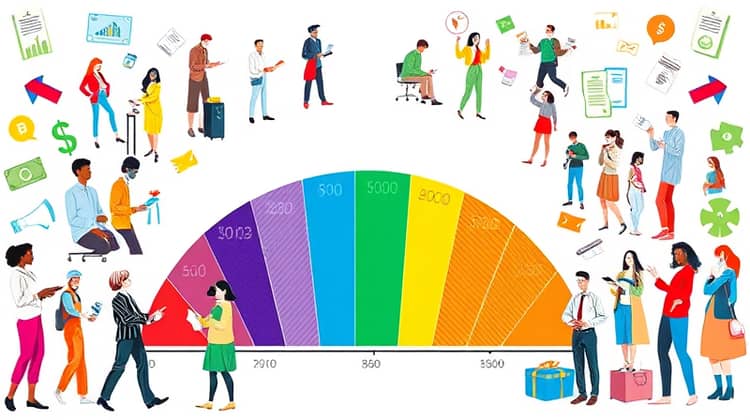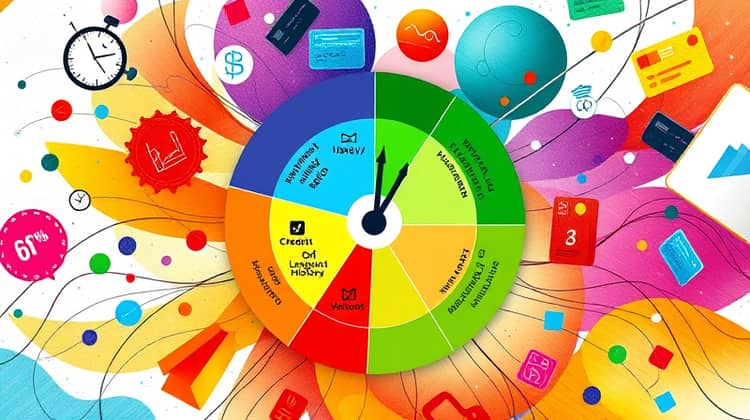Credit Cards & Credit Scores: Understanding Their Interconnection

Credit cards are often viewed simply as a means of payment; however, their impact reaches far beyond the point of sale. They play a crucial role in shaping one's credit score—a key factor in determining financial opportunities such as loan approvals or interest rates. Understanding this connection is vital for anyone looking to manage their finances effectively. In this article, we will delve into the relationship between credit cards and credit scores, unraveling how they work together and what you can do to ensure a healthy financial future.
Understanding Credit Scores

A credit score is a numerical representation of your creditworthiness, which lenders use to evaluate your likelihood of repaying borrowed money. It is influenced by various factors, including your payment history, the amount of debt you owe, and the length of your credit history. By understanding how credit scores are calculated, you can make more informed decisions regarding your credit usage.
- Credit scores typically range from 300 to 850.
- A higher credit score indicates better creditworthiness.
- Most lenders look for scores above 650 for loan approvals.
- Payment history accounts for 35% of your credit score.
- Credit utilization affects 30% of your score.
Awareness of your credit score is the first step towards managing your financial health. Regularly checking your score and understanding the factors that contribute to it can empower you to make strategic decisions about your credit cards and financial engagements.
The Anatomy of a Credit Score

To better grasp how your credit cards can impact your credit score, it's essential to dissect its components. Each element plays a pivotal role in forming your overall credit profile.
- Payment History (35%)
- Credit Utilization Ratio (30%)
- Length of Credit History (15%)
- Types of Credit Used (10%)
- New Credit Inquiries (10%)
Understanding these components allows you to pinpoint areas for improvement and formulate effective strategies for managing your credit responsibilities. Awareness of how these aspects interact with each other is a powerful tool for anyone aiming to improve their credit standing.
Credit Cards: More Than Just Plastic

Credit cards are often perceived as just convenient payment tools. However, they hold significant potential for building and boosting your credit score. Properly managed, they can serve as a stepping stone towards achieving a robust credit profile.
- Credit cards offer a way to establish a credit history.
- Using credit cards responsibly can improve your credit score.
- Many credit cards come with rewards that can benefit users financially.
- Timely payments can enhance your payment history record.
Recognizing the potential of credit cards helps individuals utilize them wisely as part of their financial toolkit. With the right approach, they can be leveraged to enhance your credit score while also providing valuable perks and benefits.
How Credit Cards Affect Your Credit Score

Credit cards have a direct connection to your credit score, and their impact can be both positive and negative. Understanding these effects is crucial for managing your credit responsibly to achieve the best possible outcomes.
- Making on-time payments boosts your credit score.
- High credit utilization can lower your score.
- Opening new credit cards can cause a temporary dip in your score due to inquiries.
- Closing old credit cards may negatively impact your credit history length.
- Maintaining a diverse range of credit types can positively influence your score.
By managing your credit card usage effectively, you can improve or maintain a healthy credit score. Awareness of the consequences of your credit card activities is a significant factor in fostering financial wisdom and stability.
Best Practices for Managing Credit Cards

To maximize the benefits of credit cards while minimizing the risks, it’s vital to adopt best practices in credit management. Following a few strategic guidelines can lead to enhanced financial health and stability.
- Pay your bills on time to maintain a positive payment history.
- Keep your credit utilization below 30%.
- Review your credit reports regularly to spot errors.
- Consider keeping older accounts open to extend your credit history.
- Limit new credit inquiries to avoid score dips.
Implementing these best practices will enable you to leverage your credit cards effectively, strengthening your credit report and financial status. When approached with responsibility and knowledge, credit cards can be a beneficial resource rather than a financial liability.
Conclusion

Understanding the interplay between credit cards and credit scores is essential for anyone looking to navigate their financial journey successfully. By consistently practicing responsible credit card usage, you can enhance your creditworthiness and unlock opportunities for future financial ventures.
As with any financial tool, knowledge and awareness are the keys to success. Take the time to educate yourself about credit scores, monitor your credit report regularly, and apply best practices in managing your credit cards. This approach will position you effectively in the world of finance, paving the way for a bright and stable financial future.






